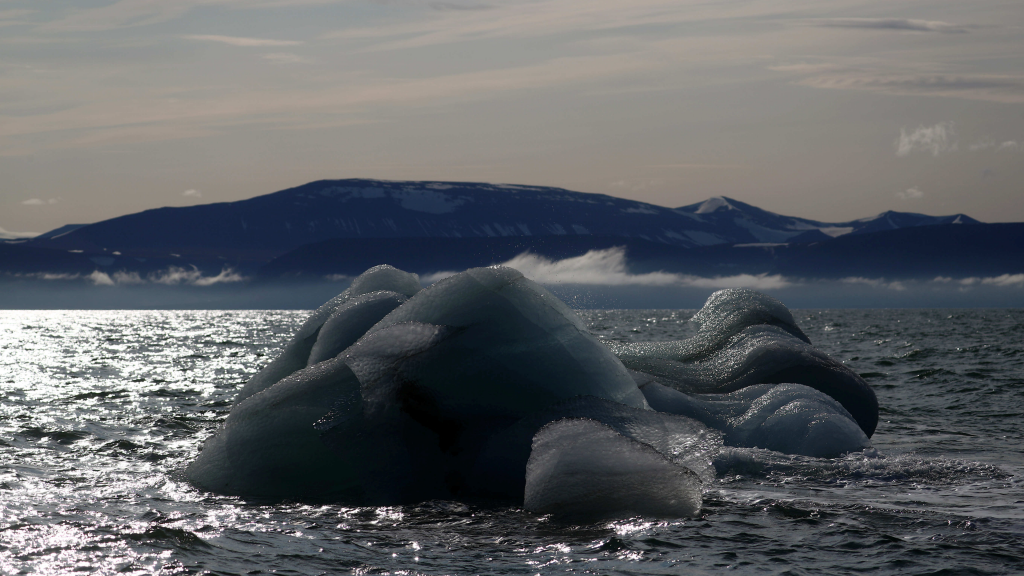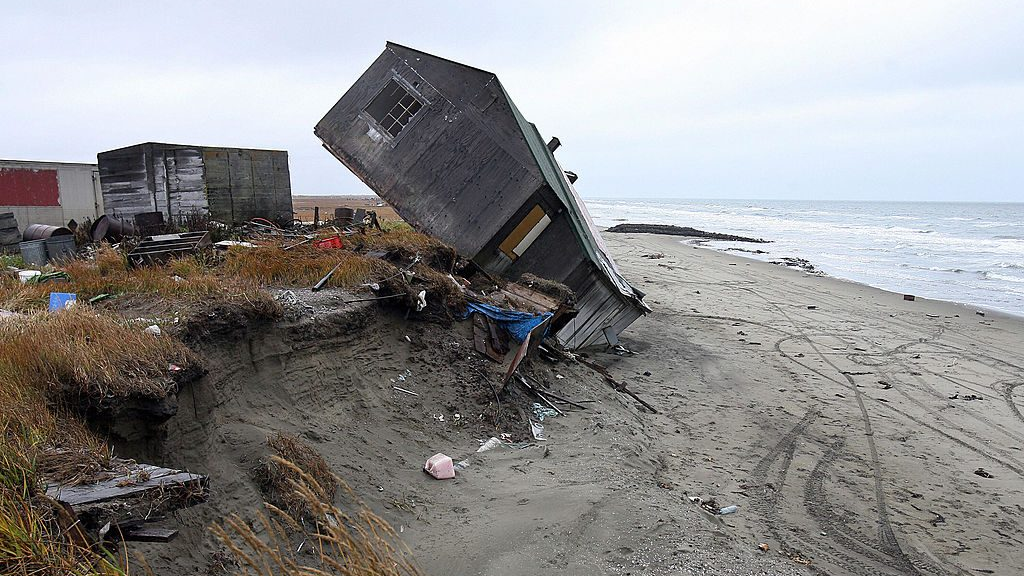Global ocean temperatures hit new record highs in 2019 causing devastating effects in the Arctic

World ocean temperatures in 2019 were the highest ever recorded in human history, reflecting the speed at which our planet is warming and the associated risks, according to an international study conducted by 11 institutes around the world.
“The key to answering this question [global warming] is in the oceans—that’s where the vast majority of heat ends up.,” said John Abraham, co-author and professor of mechanical engineering at the University of St. Thomas in the United States in a press release. “If you want to understand global warming, you have to measure ocean warming.”
According to the study, more than 90% of global warming heat produced on Earth since 1970 went into the ocean. The atmosphere, and the land where humans live, have only been warmed by less than 4% of this heat. This makes the study of oceans temperature the best way to measure climate urgency.
In their paper published in Advances in Atmospheric Sciences, the 14 scientists involved also showed that the last decade was the warmest recorded in the oceans with the five past years being the warmest ever recorded.
Of the various oceans affected, the ones near the Antarctic Circumpolar Current continued to show a larger warming compared to most of the other basins, the study says.
This warming had consequences for the ice in the South as well as in the North with both the Arctic and Antarctic oceans recording their second-smallest average annual sea-ice coverage during the 1979–2019 period of record, according to the National Oceanic and Atmospheric Administration (NOAA).

“The Arctic is warming faster than the rest of the globe.”
According to Walt Meier, Senior Research Scientist with the National Snow and Ice Data Center who did not take part in the study, the Arctic “is warming two to three times faster than the rest of the globe”.
Part of this is due to a phenomenon called “Albedo effect”.

Being white, the ice reflects most of the Sun’s energy. In fact, over 90% of this energy gets reflected on snow-covered ice. Energy that isn’t reflected is the one that melts the ice.
When the ice starts to melt, this number goes down to 60-50%. But as we lose the ice, the ocean, in contrast, is very dark and has a very low albedo, explains Meier.
“The ocean reflects less than 10% of the Sun’s energy, so over 90% of this energy goes into the ocean, get absorbed by the ocean. In the ocean, there is no ice to melt, there is no other place for the energy to go, except to raise the temperature,” explains Meier in a phone interview with Eye on the Arctic.
As the ocean warms, we also see the ice melting faster, which in turn continues to amplify the albedo effect.
It creates a chain reaction that in the end considerably reduces the Arctic ice sheet.
We also see this happening on land with the heat melting the snow in early spring.
Dramatic impacts are already visible in the Arctic
As reported by various international organizations such as NASA, NOAA, the UK Meteorological Office or the World Meteorological Organisation (WMO), the rising global temperatures means less ice during the summer in the Arctic.
As a result, local ecosystems get greatly affected. Animals such as polar bears, walrus or seals for example are losing their habitats and have to adjust with difficulties.
Melting ice also affects local communities which rely on it in many ways. Ice is less strong than before and so less reliable to use for transportation or for hunting, for example.

In other areas, the floor that was once permanently frozen, the permafrost, is even starting to thaw.
“So we are seeing the shoreline, which is permafrost, starting to collapse and part of that is due to the thawing permafrost but also the appearance of more open water creating more energy for storms. So we see a storm surge and wave erosion,” said Walter Meier.
Already today, we are seeing buildings collapsing and people moving further inland in Arctic regions in response to climate change.
In addition, thawing permafrost releases carbon dioxide from dead animals and plants, adding to our human emissions of greenhouse gases.
Less ice and more climate events to come
If temperatures continue to rise, scientists believe that we will see less ice in the Arctic throughout the different seasons.
This will mean more heat absorbed by the ocean but also more open water appearing earlier.
With water getting warmer, the oceans will release more energy and moisture to feed into the atmosphere which can then be translated by bigger storms.
“The Arctic hasn’t been known for big storms other than at the margins […] but we are starting to see some big storms in recent years. If they go into the ice cover, like we’ve seen in 2012, the ice breaks up a lot more and melts a lot faster,” explains Walter Meier.
An unusually strong storm formed off the coast of Alaska on August 5, 2012, and tracked into the centre of the Arctic Ocean, where it lingered for several days, according to NASA.
[VIDEO CAPTION] Watch how the winds of a large Arctic cyclone broke up the thinning sea ice cover of the Arctic Ocean in early August 2012. The storm likely contributed to the ice cap’s shrinking to the smallest recorded extent in the past three decades.(NASA)“Global warming is real, and it’s getting worse,” said John Abraham, co-author and professor of mechanical engineering at the University of St. Thomas in the United States. “And this is just the tip of the iceberg for what is to come. Fortunately, we can do something about it: We can use energy more wisely and we can diversify our energy sources. We have the power to reduce this problem.”
According to the researchers, humans can work to reverse their effect on the climate, but the ocean will take longer to respond than atmospheric and land environments.
Currently, by conserving 90% of the Sun’s energy and warming, the ocean is maintaining a balance with rising global temperatures.
“But if we were to stop greenhouse gas emissions completely today and even if we were to reduce carbon in the atmosphere back to pre-industrial levels, we would still have a period of increasing warmth and temperatures rising because the ocean’s heat will then come out and feed into the atmosphere,” explains Walter Meier.
But Meier is however positive that we would then be able to bend the curve fairly quickly.
In any case, both Walter Meier and the 14 scientists involved in the study agree that it is imperative to act fast to reduce our greenhouse gas emissions if we are to stop this rise in temperatures.
Now, the researchers behind this study want to look at how warming impacts oceans beyond temperature, says the press release. They plan to study how water temperatures affect the water’s buoyancy, which directly affects the distribution of nutrients and heat.
Related stories from around the North:
Canada: 2019 shaping up to be the second or third warmest year on record, says WMO provisional report, Eye on the Arctic
Finland: Finland nearly 1 degree warmer than usual in 2019, Yle News
Norway: Temperatures on Svalbard have been above normal for 100 straight months, The Independent Barents Observer
Russia: Russian climate report stresses adaptation but no reduction in fossil fuel extraction, The Independent Barents Observer
Sweden: Small fires break out due to dry conditions, Radio Sweden
United States: Temperatures nearing all-time records in Southcentral Alaska, Alaska Public Media



